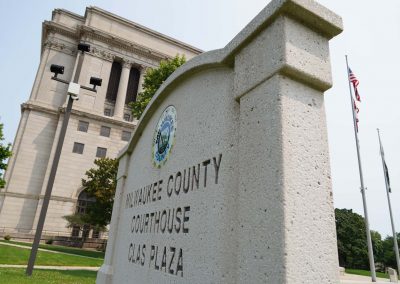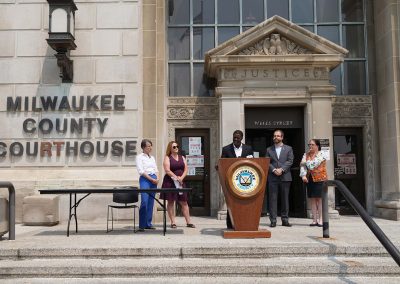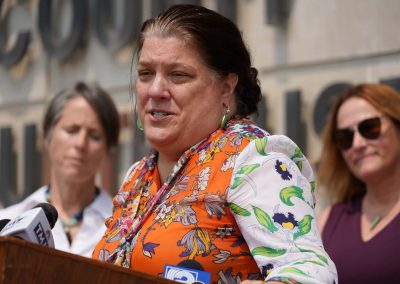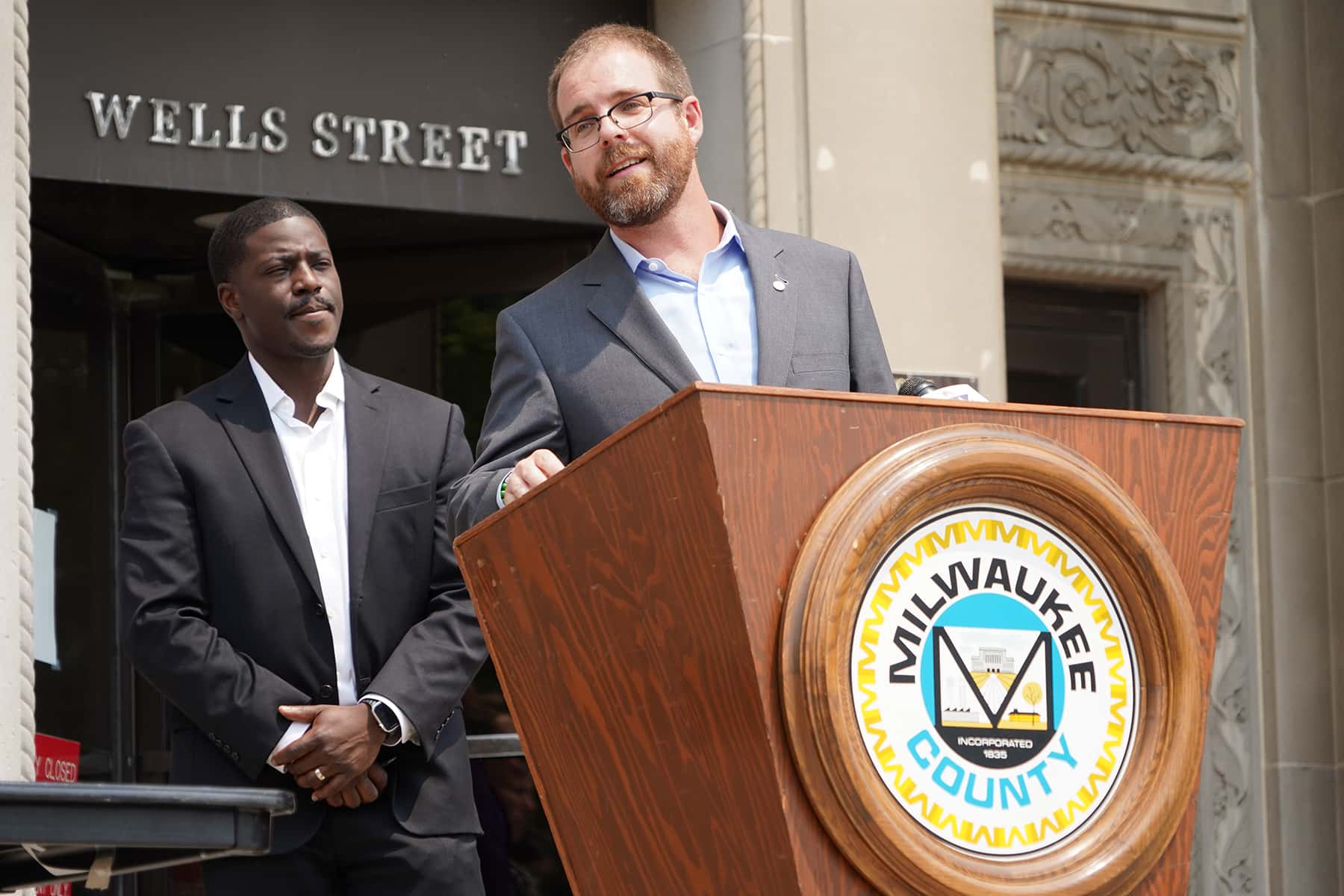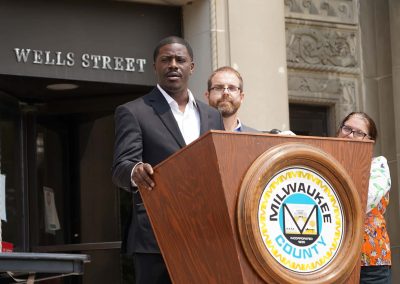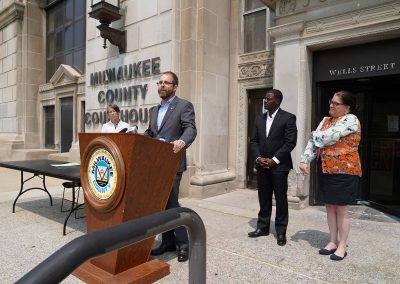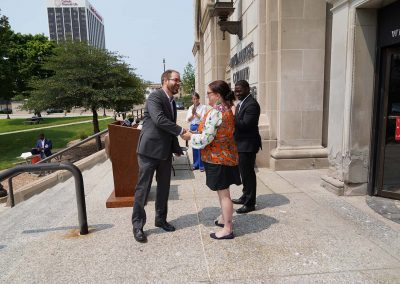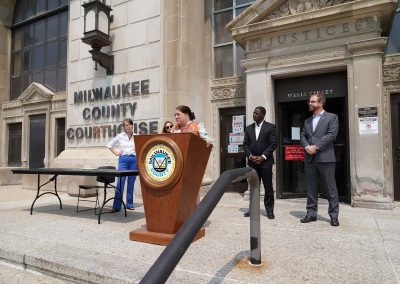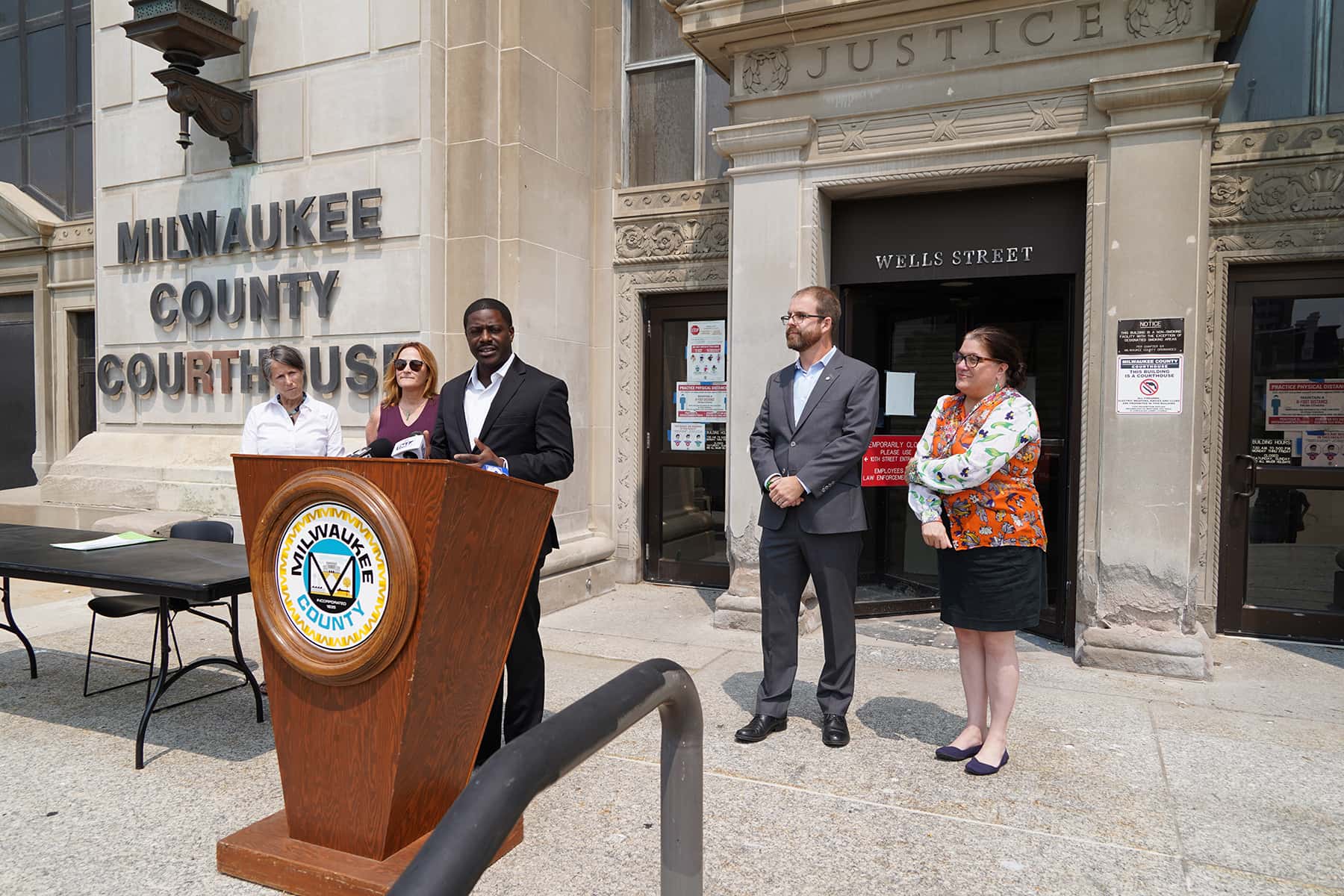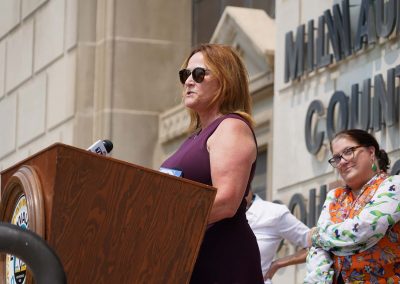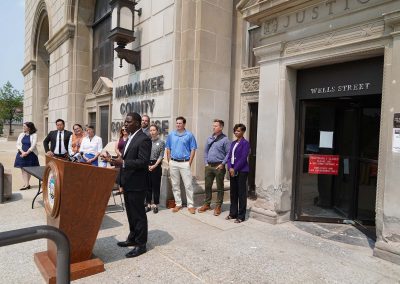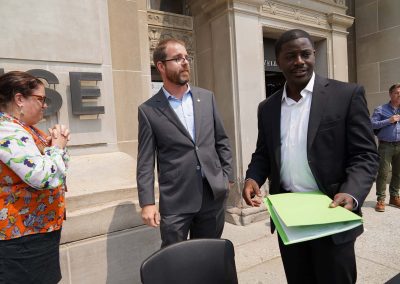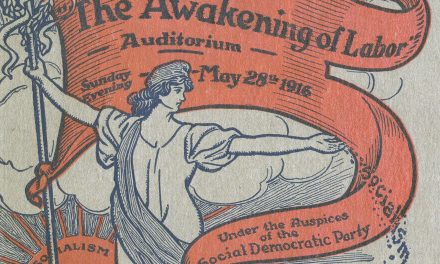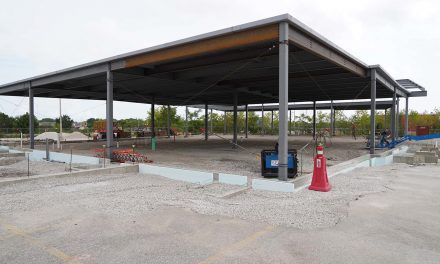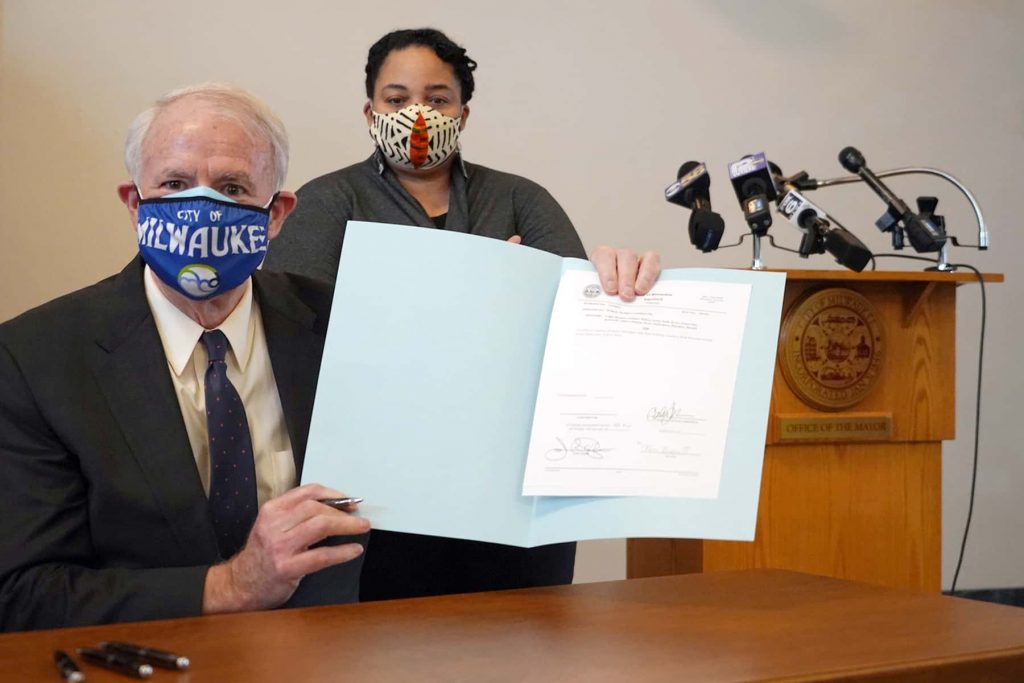
Milwaukee County Executive David Crowley signed the “Right to Counsel” ordinance into law on July 19 outside the County Courthouse, in an effort to assist local residents facing eviction or foreclosure.
Right to Counsel Milwaukee (RCTM) establishes a pilot program to provide no-cost legal representation for residents facing eviction or foreclosure. Since the onset of the global pandemic, Milwaukee County has allocated over $30 million through stimulus funding to provide eviction prevention, rental assistance, and mortgage assistance. The funds have supported Milwaukee County residents facing housing instability.
“I’m proud to sign the Right to Counsel legislation into law and take another important step forward in increasing housing security for Milwaukee County residents as we continue our recovery from the economic downturn caused by the global COVID-19 pandemic,” said County Executive Crowley. “Eviction curtails access to safe, affordable housing from reputable landlords and perpetuates the cycle of poverty for generations. Right to Counsel provides an additional resource for residents to maintain housing security and avoid the negative impacts of eviction.”
56,420 evictions were filed in the City of Milwaukee from 2016 to 2020, according to the Track Milwaukee Evictions Project. Data from the Legal Action of Wisconsin’s Eviction Defense Project indicates that 90 percent of eviction cases in Milwaukee County are dismissed or delayed when a tenant has legal representation. The “Right to Counsel” is another strategy to assist in reducing evictions. Through federal funds, Milwaukee County has saved over 8,500 families from being evicted, which has helped lead to a dramatic decrease in street homelessness.
The County Executive was joined by the proposal’s author Supervisor Ryan Clancy, along with Colleen Foley from the Legal Aid Society of Milwaukee, Deedee Peterson of Legal Action of Wisconsin, and Nicole Angresano from the United Way of Greater Milwaukee.
“I’m deeply grateful for the many organizations and individuals who were part of this monumental step. From the United Way who showed up with support and a $1.5 million commitment, to the many organizations who advocated for it, to the folks impacted by eviction who bravely shared their stories, the push for the Right to Counsel has been a community effort,” said Supervisor Clancy. “I’m thankful that this important right has the support of County Executive Crowley and I am excited to see the positive impact it will have on families and individuals. When we prioritize spending on human needs, the effects are enormous and far-reaching.”
In November of 2020, Supervisor Clancy authored a budget amendment that directed the Department of Health and Human Services to analyze the costs and benefits of providing legal counsel to folks facing eviction or foreclosure. The program is tentatively scheduled to launch on September 1, 2021.
“This is a big, significant measure. But it’s part of a larger investment which includes both continued rent assistance and investment further upstream in human needs,” added Supervisor Clancy. “I’m confident that the data that we collect during this pilot program will compel us to continue and expand this support beyond these first 18 months.”
The pilot phase of the program will be focused on representing eligible families with minor children facing eviction. Any family unable to afford a lawyer will be represented by one of RTCM’s twelve attorneys specializing in housing law. Robust subcontracting of qualified counsel will ensure appropriate coverage for overflow and conflict issues. The program model is to provide full representation to ensure proper time to develop legal strategy and defenses, prepare discovery, investigate out-of-court resolutions, advocate at hearings, and address often overwhelming monetary damage judgments.
“United Way of Greater Milwaukee & Waukesha County is pleased to see Right to Counsel evolve from idea to reality. The impact of COVID on housing stability has reinforced the need for robust eviction prevention efforts – which include direct service and policy change,” said Nicole Angresano, United Way of Greater Milwaukee & Waukesha County Vice President of Community Impact. “Right to Counsel is a key piece of our commitment to ending Family Homelessness by 2023. We are grateful to continue to partner with Milwaukee County towards this end.”
The measure had broad community support with individual or organizational advocacy and support of Legal Action Wisconsin, Legal Aid Society of Milwaukee, Milwaukee Democratic Socialists of America, Milwaukee Autonomous Tenants Union, The Peoples Revolution, American Civil Liberties Union, and Street Angels Inc.
Milwaukee County Small Claims Court data has indicated that families at-risk for evictions are mostly Black and Latino residents in low-income areas. Black women, families with children, and Latino families in mostly White neighborhoods are disproportionally evicted. Citywide, Milwaukee is 38% African American, with a 25% poverty rate. The 10 neighborhoods with the highest eviction rates are 73% African American with a 40% poverty rate. Research by EvictionLab and the ACLU confirm that evicted families have worse outcomes in critical determinants, such as economic stability employment, education, physical and mental health.
“Housing is one of the main social determinates of health. By providing comprehensive eviction prevention strategies, our community has provided stability for thousands of households who otherwise would have had nowhere else to turn,” said Milwaukee County Housing Administrator James Mathy. “Right to Counsel will ensure families have the representation they need and that Milwaukee County can continue its progress in dramatically reducing homelessness.”
In addition to RTCM, Milwaukee County is launching a regional eviction prevention campaign in partnership with Waukesha County to get the word out that the Emergency Rental Assistance Program (ERAP) has available resources. For individuals who qualify, ERAP pays for up to three months of rent at a time, up to twelve months of rent in arrears, cost of electricity and other home energy costs, and cost of utilities in arrears occurring after March 13, 2020.
© Photo
Lee Matz

